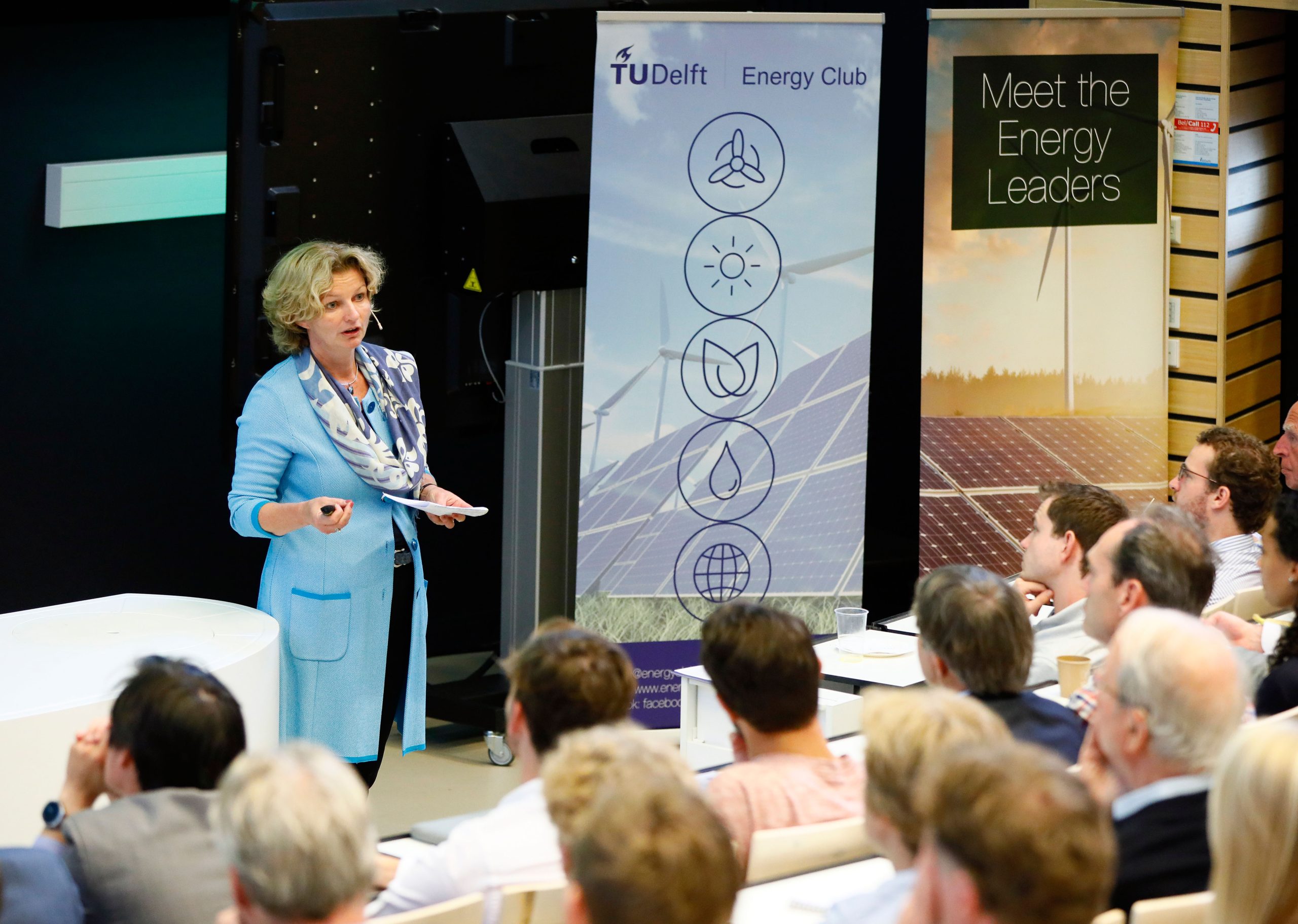Director of Shell Netherlands, Marjan van Loon, met the TU Delft energy community in the lecture series ‘Meet the Energy Leaders’ on Monday 25 September.
The large lecture room was fully booked. A video screen and a live stream provided additional access for the viewers that the hall could not accommodate. Clearly, energy transition is a topic that resonates within the TU Delft community. The Delft Energy Initiative and The Energy Club had invited Shell Netherlands director Marjan van Loon for a lecture on opportunities in Dutch energy transition.
“Whatever your take on energy transition,” Van Loon said, “we have a common goal to decarbonise our energy use to comply with the Paris Climate Agreement.” She added that within the time frame of between now and 2050, there is no way we can generate more energy while at the same time reducing CO2 emissions without fossil fuels. So, the question is: how can society’s carbon footprint be reduced?
Van Loon explained that Shell’s new profile as a gas company, instead of an oil company, is in line with the carbon reduction. “I know gas is a fossil fuel, but it is clean and it produces half the CO2 emissions in comparison with oil.”
Other ways in which Shell cuts back on carbon emissions are investments in offshore wind parks and other forms of ‘new energy’; providing urban heating to 16,000 houses with industrial waste heat; introducing LNG (liquid natural gas) for heavy transport; and launching bunker vessel that provides transport ships with LNG instead of crude oil.
’We have more offshore wind in our portfolio than Eneco does’
“People point out to me that our investment of 1 billion euros in sustainable energy sources is small compared to the fossil fuel investments of 25 billion euros. I reply that we have more offshore wind in our portfolio than Eneco does – but it does not bring Shell the same green image.”
Van Loon demonstrates her pragmatic approach and her wish for an open dialogue by driving a hydrogen car, even though there are only three places in the Netherlands where she can fill up. Everywhere she goes, people approach her to talk about the pros and cons of driving on hydrogen. “You should just make a change somewhere and take it from there,” she argues.
One of the students protested. “Shell explored oilfields in Alaska, you stepped into wind energy and pulled out again. The same with solar energy. Shell is just plain opportunistic.” Van Loon retaliated: “Of course we are. That’s what enterprises do; they look for opportunities. Shell has traded in lamp oil, in coal, in oil, now in gas and we’re exploring sustainable energy. If the time is right and there is a viable business model, we step in.” She added that differences in local circumstances result in different energy choices. “Different places, different paces”. But she left no doubt that reducing CO2 emissions was her primary mission within Shell, to which she dedicates half her time.
Related articles:
‘Red de wereld, koop Shell’ – Mark van Baal on his mission to change Shell from within.
‘Get out of your comfort zone’ – Marjan van Loon interviewed by three TU Delft students.
‘We need Shell to fight global warming’ – an opinion article of TU Delft students.
Bepaalt Shell de onderzoeksagenda van de TU? – an investigative article by Delta reporters Connie van Uffelen and Tomas van Dijk.
 (Photo: Roy Borghouts)
(Photo: Roy Borghouts)Heb je een vraag of opmerking over dit artikel?
j.w.wassink@tudelft.nl


Comments are closed.